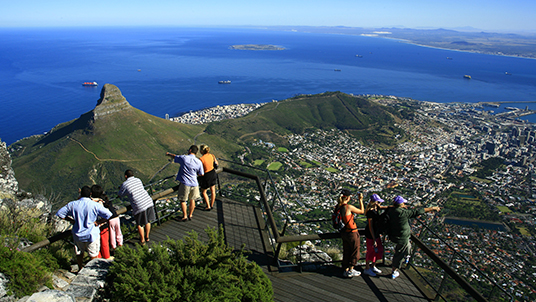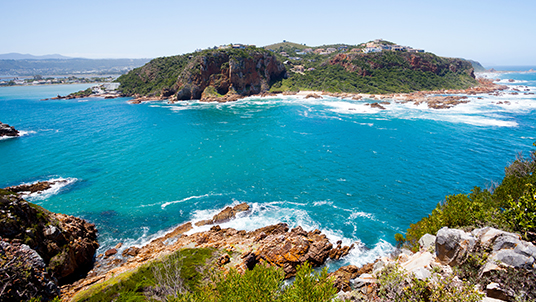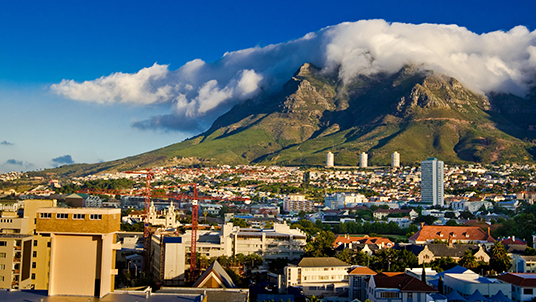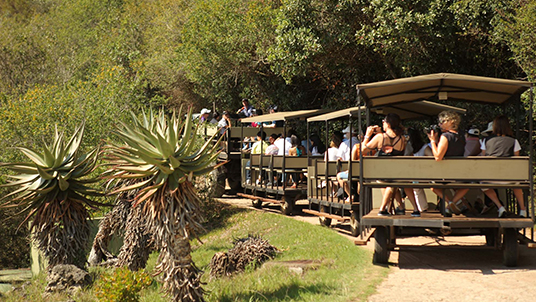 MAY 08, 2019 – I had the privilege of witnessing South Africa’s fifth national elections since Apartheid came to an end. Having actually lived in four continents, including a large part of my formative years in Africa, the political developments in South Africa have always been of personal interest to me. Nowhere but in South Africa have I seen racial groups so brutally humiliated right in their own land. And this was inspite that they had an overwhelming majority in population. The only “crime” was the colour of their skin. What’s worse is that this humiliation was legal. Yes, legal, because the then Constitution of South Africa (imposed by the minority) allowed for discrimination based on the colour of the skin of its citizens. The visit last month was not my first to South Africa, but it was the first time I had been there while such a politically important event was taking place. I took the opportunity to converse with the people of the country especially the youth about what it was like living under the apartheid system, and how the country has grown since apartheid ended 25 years ago. Let me tell you what baffled me. In 1945, South Africa became a charter, or founding, member of the United Nations (UN). Three years later, the UN passed the Universal Declaration of Human Rights and South Africa decided to abstain from the vote, as the UN declaration contravened its constitution. Their constitution had been passed just a few months prior, and allowed for inequality among people based on the colour of their skin. That the apartheid system was constitutionalised 115 years AFTER the abolishment of slavery in the British Empire confounds me. The apartheid system in South Africa was allowed to function for 50 long years. The civilised world allowed this to happen and label the people fighting against it, as terrorists. It only ended in 1994 - decades after the Civil Rights Act in the US had outlawed any kind of discrimination based on race. How could our civilisation allow this to happen? With a backdrop of years of repression and animosity, it was expected that bloodshed, riots and killings would follow the end of apartheid. This was considered to be an obvious human reaction to decades of discrimination. However, one person grew from the tortures he suffered in captivity and proved this notion otherwise, saving the lives of scores of people and of all races. In 1994, after his release from 27 years in prison, Nelson Mandela became the first South African leader elected in a multiracial democratic election and spearheaded the country’s post apartheid recovery and reconciliation movement. He became a worldwide symbol for peace and reconciliation.
South Africa is trying to bring a special message to its own citizens and with that to the rest of us: Don’t forget what happened during apartheid and its aftermath, and don’t forget how far we have grown since then. The ultimate goal is harmony between communities and I could see that in formation in todays South Africa. To me, it is a lesson that holds value for all of us anywhere and all over the world. Since my return I have discussed this with many and several have shown interest in seeing the new South Africa through the eyes of the victims of the apartheid eras. We’re excited to announce that we are working on this and will be incorporating the living history and in-person and personal stories of apartheid, and how South Africa has grown since then. In this special tour we will dive into the areas of some of apartheid’s most significant historical events and hear stories of the people who experienced them in-person. We will simultaneously also experience South Africa’s cultural and scenic sites like wildlife, winery, World Heritage sites. If you want to be part of this Experience, or even in integrating some apartheid content into one of your own tour of South Africa please get in touch with us at bestway@bestway.com. We will be pleased to take you through the history of apartheid and the reconciliation movement that saved the lives of a nation. Your Bestway team joins me in wishing you a good summer. Mahmood Poonja Chief Explorer SOUTH AFRICA, SWAZILAND & LESOTHO WORLD IN ONE COUNTRY
SOUTH AFRICA, SWAZILAND & ZULULAND SOUTH AFRICAN ODYSSEY
SOUTH AFRICA CAPE TOWN EXPERIENCE
CUSTOMIZED SOUTH AFRICA
|
|






 Posted by Mahmood Poonja, Chief Explorer
Posted by Mahmood Poonja, Chief Explorer